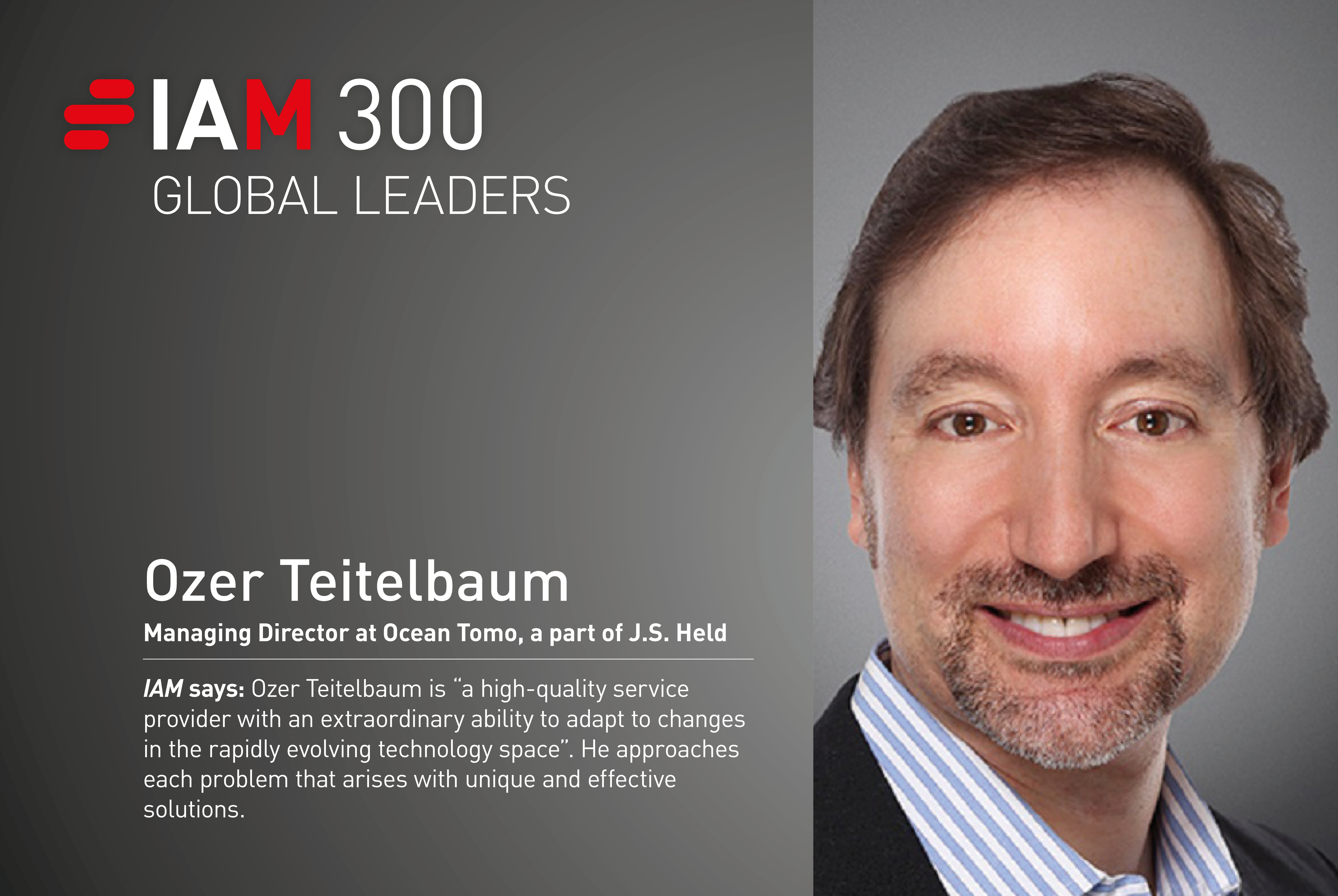Ozer Teitelbaum
What led you into a career in transactions and what advice do you have for anyone considering doing the same?
I entered the world of transactions circuitously, starting as a semiconductor researcher and then becoming a patent lawyer. Initially, I was focused on drafting and prosecuting patent applications, but I got pulled into client-critical litigation, settlement negotiations and M&A projects. This led me to focus on licensing and monetisation, which gave me tools to understand the necessary elements for successful transactions. My advice to anyone following something similar to my career path is to be passionate about solving problems, remain flexible, keep an open mind and stay attentive to details.
What are the most integral characteristics of a world-class monetisation strategy?
Ideally, a world-class strategy would start with a portfolio that has a global footprint. Multiple jurisdictions present a variety of inflection points for enforcement and create maximal value. But, even with only a single geography, a world-class strategy requires the creation of an enforceable portfolio. This means creating patents with an eye beyond securing the grant but focused heavily on enforcement. The drafting attorney must deeply appreciate how the addressable market may fully evolve over the asset’s life and understand how the specification and claims will be attacked in monetisation.
How would you characterise the global licensing landscape right now?
The current global landscape continues to evolve. Now that the UPC has successfully launched, licensing activity should increase if patent owners use the court since it affords injunctive relief. The Fourth Amendment to the Chinese Patent Law should also spur licensing activity as it has reformed the discovery process rules for determining damages. Meanwhile, within US Congress, there is a movement to peel back some of the changes enacted by the America Invents Act with both the PREVAIL Act and the Patent Eligibility Restoration Act, as well as a draft bill to overturn the Supreme Court’s ruling in eBay v MercExchange, making injunctive relief more obtainable.
Your practice covers an incredibly broad range of technologies, from AI and machine learning to oil and gas and medical devices. How do you keep abreast of the latest developments in such a wide array of fields?
I am a highly curious person by nature. While I started my professional career focused on semiconductor research, I was interested in other scientific disciplines, which led me to become a patent lawyer. I dedicate time every week to reading scientific research and market trends from leading periodicals, published/granted patent applications and industry journals.
What are the most impactful changes in global IP practice you have seen over the last 12 months?
First and foremost, the launch of the UPC has placed a greater emphasis on European rights in IP practice because it allows parties to file patent cases in one of several central courts that will apply across Europe. In the United States, the Supreme Court’s Amgen v Sanofi ruling may pose a challenge for owners of US assets in terms of certain functional claim language. There is also a global jurisdictional battle over FRAND licensing rates for SEPs. Finally, only slightly over the horizon – if not upon us already – I envision a plethora of IP issues increasing as the commercialisation of AI gains momentum in the marketplace.
Ozer Teitelbaum
Managing Director
[email protected]
Ozer Teitelbaum is a managing director of Ocean Tomo’s, a part of J.S. Held, investments practice. He has more than 30 years of experience in protecting, capturing and commercialising innovation. Mr Teitelbaum’s expertise spans IP monetisation, formulating and implementing IP strategies including licensing, M&A, spin-outs, brokering, portfolio management and the full practice of IP law. He is registered to practice before the USPTO and licensed to practice law in New York and Connecticut.
